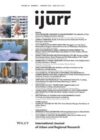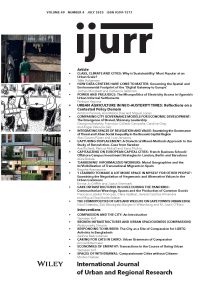In this article I develop the concept of ‘darkening’, understood as a public-led process characterized by using a dark-based rhetoric that speaks to the ‘shadow’ or ‘gloomy’ status of certain informalized activities, while evoking neocolonial notions of a racialized Other and often resulting on the increased criminalization and in/visibilization of informalized (migrant) workers. By drawing comparisons between the intersectorial and multiscaled intersection of public policies, public-led strategies and dominant (institutional and media) narratives affecting three types of de facto informalized labour activities in Spain (sex work, domestic employment and informal street vending) I shed light on the link between the governance of informalized (racialized) work and the reproduction of certain moral geographies in Spanish cities. Particularly, I show how the effect of ‘darkening’ has been to make these informalized workers more clandestine (displacing them ‘into the shadows’), hence criminalizing certain labour activities in public/visible spaces based on moral and legal arguments, while permitting, tolerating or even favouring those same activities in private/less visible spaces. By addressing the underexplored symbolic/discursive dimensions of darkness, and the blurred lines between traditional categories (public/private, urban/rural), this work aims to be a relevant contribution to contemporary debates on urban/night studies.
Details
Written by:
Begoña Aramayona
Digital Object Identifier (DOI)
https://doi.org/10.1111/1468-2427.13328
About DOI

